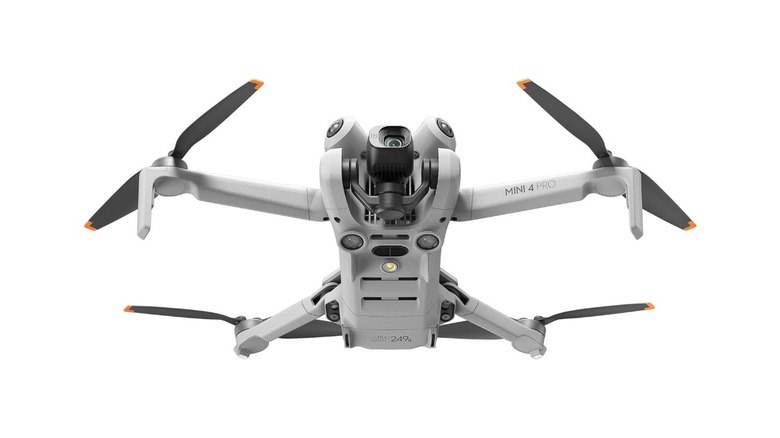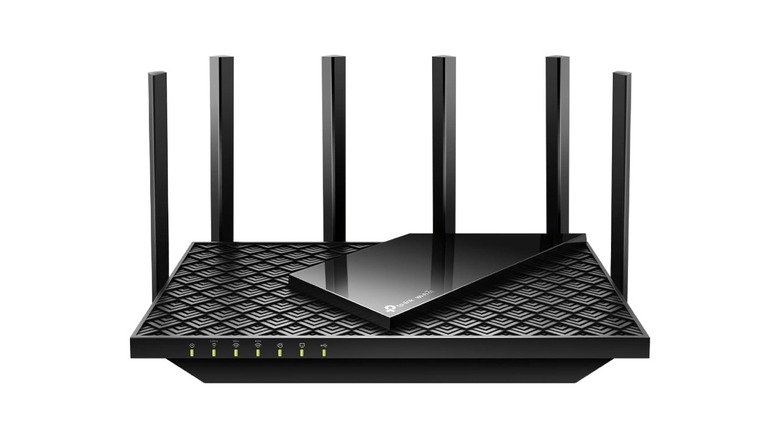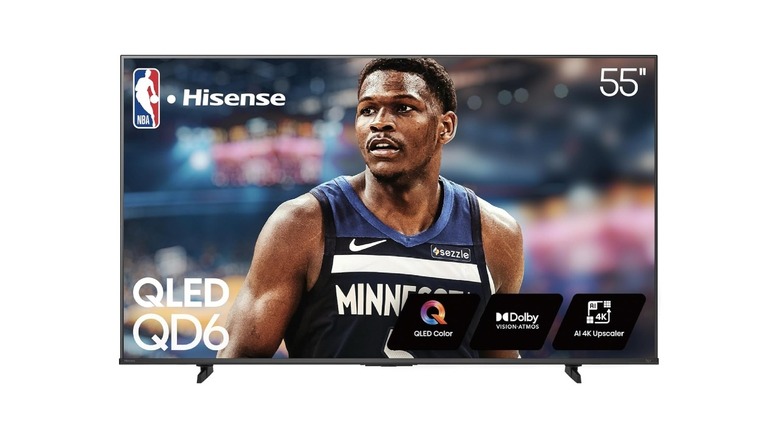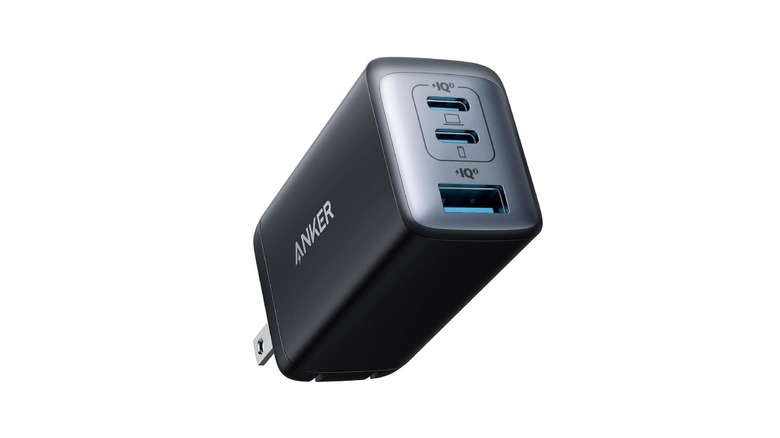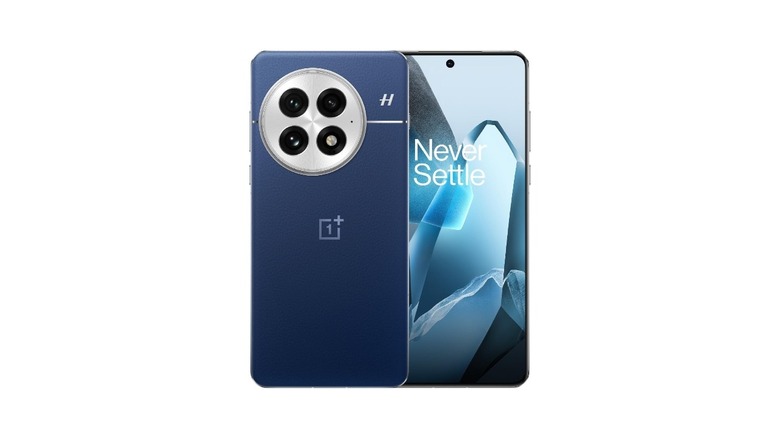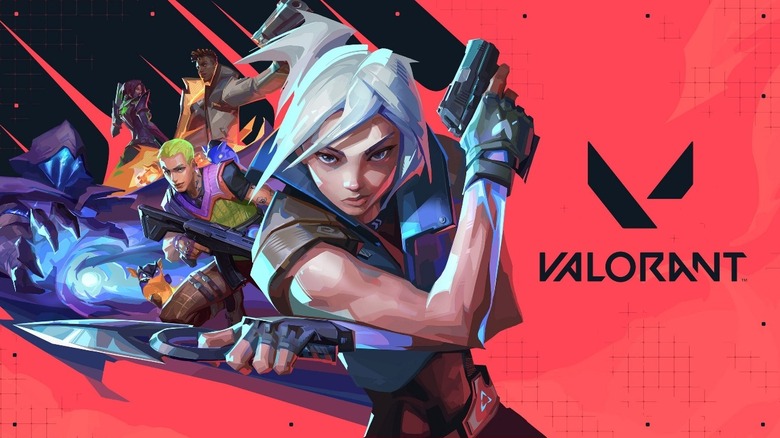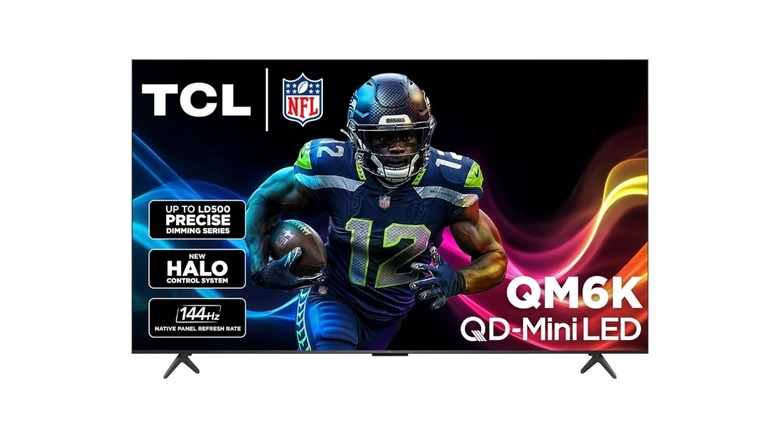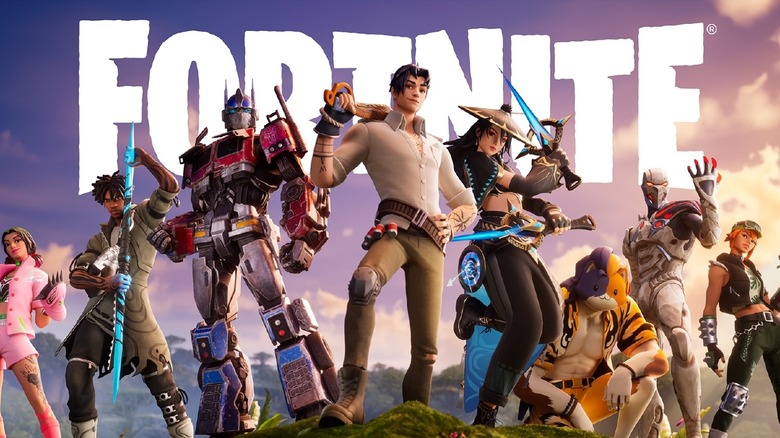8 Tech Brands So Popular In America, You Probably Didn't Realize They're Owned By China
We may receive a commission on purchases made from links.
Our lives are surrounded by a multitude of gadgets, gizmos, and other tech products spread across various categories. Right from the smartphones in our pockets to the thermostats used to control the temperature at home, tech is ingrained into every aspect of our daily lives. We all use tech products from multiple different brands. Some may use a phone from Apple, or a refrigerator from Samsung. Most consumers pick tech products from popular brands since they're expected to last longer. Owing to this, some brands become household names in the U.S. — even if they did not originate domestically. You may be surprised to learn that many brands you use daily and are popular in the U.S. are owned by Chinese companies.
This includes everything from smartphones, laptops, and Wi-Fi routers to TVs, drones, and even some of the most popular games. We've compiled a list of popular American brands that you may not know are Chinese. Notably, we've included companies that are either headquartered in China or have a majority Chinese shareholder. Some brands are also directly or indirectly linked to the Chinese government, which we will mention wherever applicable. You can use this information to determine if the products are affected by tariffs, or if you want to switch to an alternative that's either American or originates from a different country.
DJI
If you've ever thought of buying a drone, chances are that you zeroed in on a product from DJI. This is because DJI, or Da-Jiang Innovations, makes some of the best consumer-grade drones sold in the U.S., with no other major brand coming close in terms of features, flight time, reliability, and ease of access. As per an estimate, DJI enjoys a massive 80% market share in the American drone industry, which clearly shows how the brand has built a monopoly with its high-quality products. Founded by Frank Wang in 2006, DJI is a privately owned company headquartered in one of the large electronics hubs in the world — Shenzhen, China. Since it's a private company, there is no public data indicating sponsorship by the Chinese government or its stake in the company.
Owing to its Chinese roots, DJI faced bans and blacklisting in 2020 from the U.S. Department of Defense over fears of data transmission to China and ties with the Chinese military. As a result, some U.S. agencies had to halt the use of drones from the brand. Even in 2025, the matter hasn't been resolved entirely, with some restrictions on the usage of DJI drones persisting. That said, an end-consumer can purchase drones from DJI for personal use without getting into trouble. The Mavic series from DJI offers stellar imaging, while the DJI Mini 4 Pro and the DJI Flip cater to budget-oriented consumers.
TP-Link
DJI is still a niche brand that makes products used by a small set of consumers. In contrast, TP-Link makes products that are found in pretty much every home. If you have a broadband or fiber connection at home, there is a chance that the router you're using is made by TP-Link. After all, the brand has a 36% market share in the U.S. router market. This means pretty much one in three routers you see at homes, shops, or offices are made and sold by TP-Link. Its popularity is primarily because TP-Link offers excellent products at reasonable prices, and there are very few brands that manufacture routers, so the competition is less. Apart from routers, TP-Link also has sub-brands like Tapo, Deco, and Kasa that sell smart-home devices like smart bulbs and smart plugs. These products are also high-quality and are among the default recommendations if one is building a smart home ecosystem.
Just like DJI, TP-Link also happens to be a privately owned company founded by two brothers – Zhao Jianjun and Zhao Jiaxing in 1996. It's headquartered in Shenzhen, China, and is owned entirely by Chinese investors. That said, there is no public data regarding the involvement of the Chinese government in either the ownership or the operations of TP-Link. Despite that, the brand faces scrutiny in the U.S. for potential security vulnerabilities, with concerns about firmware backdoors. However, no conclusive evidence has been found to back up the allegations.
Hisense
Unlike DJI or TP-Link, there's absolutely no doubt that the Hisense Group is a state-influenced electronics company from China. It's headquartered in Qingdao, China, and was founded way back in 1969. Right from the time of establishment, the company is partially owned by the Qingdao municipal government via Hisense Holdings — which is a state-linked entity. So with so many popular brands existing in the TV market, you may be wondering how a Chinese brand with partial ownership linked to the Chinese government gained the third-largest market share in the U.S.? Well, turns out, there's an underlying story behind it.
Back in 2015, Hisense acquired Sharp's TV brand rights for the U.S. market for $23.7 million. This move massively boosted the brand's presence in America. Currently, 12% of all TVs sold in the U.S. are from Hisense, with the brand becoming more and more popular in retail stores like Walmart and Best Buy. A good reason for this is that, like most Chinese brands, Hisense offers stellar value for money with its TVs, undercutting the competition by a few hundred dollars. If you're looking for an affordable smart TV that checks all the right boxes, chances are that Hisense has one. However, the brand also makes some high-quality TVs catered towards enthusiasts. Hence, it covers the entire spectrum of users, resulting in high sales figures.
Anker
Ever since big brands like Apple, Samsung, and Sony stopped shipping chargers with smartphones, Anker has become pretty much a household name. The brand makes high-quality accessories like wall adapters, power banks, wireless chargers, cables, and USB hubs. More recently, Anker has also ventured into the business of wireless headphones and Bluetooth speakers, with compelling products in each of these categories. Essentially, the brand has covered most areas in which a consumer would be looking for accessories at affordable prices. Its charging adapters and power banks are easily among the best in the industry, due to which, we have also recommended products from Anker to many of our readers.
Turns out, a big reason why Anker is able to source high-quality components at lower prices is that the brand is based out of Hunan, China. This explains the excellent supply chain ecosystem that the brand enjoys. That said, there doesn't seem to be any public information available to link the Chinese government's involvement with Anker. It's a private company owned and operated by Steven Yang, right from its founding days in 2011. More recently, Anker delved into the smart home space with its sister brand Eufy. While there may be some privacy concerns with its smart home portfolio, Anker has largely escaped any privacy breach allegations, thanks in large part to the fact that chargers and cables can't really store or send any data.
OnePlus
Let's now move on from smartphone accessories to smartphones. OnePlus is a spinoff of the Chinese smartphone brand Oppo, which itself is a part of a giant conglomerate — BBK Electronics. Launched in 2013, OnePlus' philosophy right from the beginning has been making devices that 'Never Settle'. The brand made flagship phones but with not-so-flagship price tags, which took the world by storm. It started with the OnePlus One, which offered top-of-the-line specifications in a package that undercut phones from premium brands like Apple, Samsung, LG, and Motorola. Over a decade later, the brand's philosophy has definitely undergone some change, and the prices have shot up. Despite that, the latest OnePlus 13 is among the best Android flagships you can currently buy.
Over the years, several smartphone OEMs from China have tried to enter the U.S. market but have failed. OnePlus has stuck around due to its wide popularity. While OnePlus operates as an independent entity, it is directly affiliated with and controlled by its parent company, BBK Electronics. Public records show that BBK is a privately owned company with no direct link to the state. It's headquartered in Shenzhen, China, but has a global presence — unlike several other Chinese brands. This instills some level of confidence in users, which is a big reason why the brand has escaped large allegations of data breaches or theft over the years, despite having its roots in China.
Riot Games
Most people may not know the parent company — Riot Games — but would have heard of "Valorant", since it's one of the most popular PC games right now. It's a first-person shooter with a unique take, due to which it has garnered immense popularity among the youth. Now, you may be wondering — Riot Games isn't a Chinese company, right? Well, you're partially right if you think so. The game development agency started back in 2006 very much within the mainland U.S. However, Chinese tech giant Tencent — a massive conglomerate based in Shenzhen, China — acquired a majority stake in Riot Games for nearly $400 million in 2011. Then, in 2015, Tencent took full ownership of the company, making it an entity that's owned and operated by China.
Despite Tencent's takeover, Riot Games is still headquartered in the U.S. However, all the decisions and strategies are handled by the Chinese entity. Notably, the Chinese government has a small stake in Tencent, so it could be said that the company is indirectly linked to the state — albeit in a small capacity. Since it's popular for titles like "League of Legends" and "Valorant" — games that are quite big among enthusiasts and e-sports players — Tencent has been under scrutiny for data privacy or censorship issues. However, there hasn't been any instance to suggest that the company is involved in such practices. Now that you know the Chinese links, though, will it push you to uninstall Valorant from your PC?
TCL
Just like Hisense, TCL is yet another TV brand that has a substantial market share in the U.S. market. It's primarily popular in certain segments, like ultra-large TVs (85 inches or bigger) with more than 22% market share, and about 28% in the Mini LED TVs category. TCL makes value-for-money TVs that don't break the bank while offering enticing specs like high-quality display panels, high refresh rate displays for gaming, and IPS QLED panels for better colors. Thanks to this, TCL TVs are quite popular not only in retail outlets like Walmart and Best Buy, but also on online portals like Amazon. They're priced considerably lower compared to offerings from competing brands like Samsung, Sony, or LG.
A big reason why TCL can price its TVs lower than the competition is the fact that the brand is headquartered in Guangdong, China. Owing to this, its supply chain ecosystem is well-sorted, resulting in lower manufacturing costs. It's worth noting that TCL is indirectly affiliated with the Chinese government, thanks to its initial ties with the state during its founding days. It began as a state-owned enterprise back in 1981, though it's now a publicly traded company. In 2020, some security researchers claimed to have found backdoor security flaws in TCL TVs, which is concerning. However, there are no such reports related to the current generation of products sold by the brand.
Epic Games
Another game that became hugely popular in the past few years is Fortnite. It appealed to a large audience, given that the game is available to play on multiple platforms. Apart from being a favorite among the youth, there's another similarity between "Valorant" and "Fortnite". Both games have been developed by game studios that have substantial Chinese stake holding. Just like Riot Games, Epic Games — the development agency behind "Fortnite" — sold 40% of its stake to the same Shenzhen-based Chinese giant, Tencent, in 2012 for $330 million. The major difference here, though, is that unlike Riot Games, Epic Games is still controlled largely by American founder Tim Sweeney. That said, a 40% share isn't low by any means and has given Tencent control over the strategy and board decisions of the company.
Technically, this still means that Epic Games is an American company, and isn't necessarily owned or operated directly by China. However, the substantial shareholding does raise some eyebrows, especially with regard to privacy violations. In fact, Epic Games had to pay more than $500 million in 2022 over FTC allegations of privacy violations and tricking users to make unwanted purchases. It's also possible that in the coming years, Tencent may acquire a majority stake in the company, just like it did with Riot Games.

